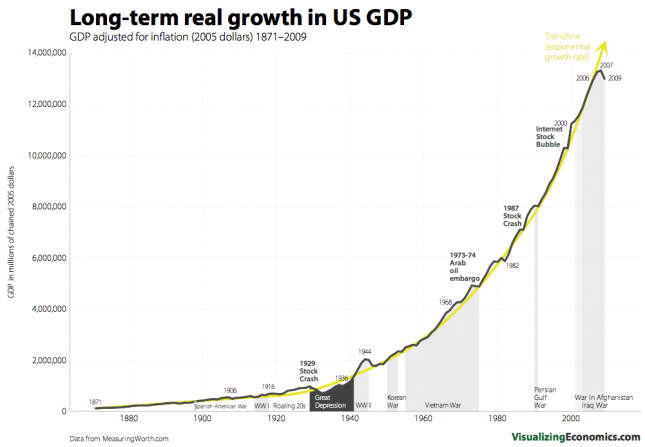@LW: I think you got the reasons wrong there.
Nixon lost the televised debate in 1960 because he'd been hospitalized recently and looked thin and sick, while Kennedy was in good shape. People who heard it on the radio overwhelmingly called it for Nixon, not Kennedy.
Nixon did quite fine on later TV debates, but as the
very first TV debate, it set things in the public's mind, and he just happened to be having a shit night due to health reasons. Nixon was a statesman, he was quite used to speaking in public. TV wasn't fundamentally a big stretch, and he became a master of the medium. Scumbag, but effective politician.
Though I should say "The economy took a nosedive" would have occurred in WW2 as well. It was the after effects on WW2 that caused the economy to flourish. You see the effect on the economy during the recovery, not during the war itself.
Sorry, Neo, you should really look up the data before deciding that. The war saw massive spending. During the depression there were stimulus packages, but they were half-hearted things that lacked the sheer scale to get things moving: you need a level of stimulus which turns confidence around, it needs to change economic behavior. During the war there was the political will to engage in massive deficit spending, which helped win the war, but also ended the depression.
Take a look at the graph, and the rate of GDP growth 1940-1944. It rivals the modern rate, but was coming from a far lower base. The GDP almost doubled in the 4 years from 1940-1944. The economic peak came in 1944, then the was a post-war slump. The GDP grew again, but never at relative rates which were quite as impressive as the war effort.
During the war, demand was massively pushed by government. This countered lack of demand by consumers from the depression. Industrial capacity expanded massively. People had jobs, and saved money.
After the war, demand fell off. But there was high supply and savings (when governments spend money, someone gets it). This meant low prices, people with money and high supply, which means consumer boom. But it took 10 years after the war for that to happen.


 Author
Topic: Doc Helgoland's Asylum for the Politically American: T+0 (Read 1420182 times)
Author
Topic: Doc Helgoland's Asylum for the Politically American: T+0 (Read 1420182 times)
